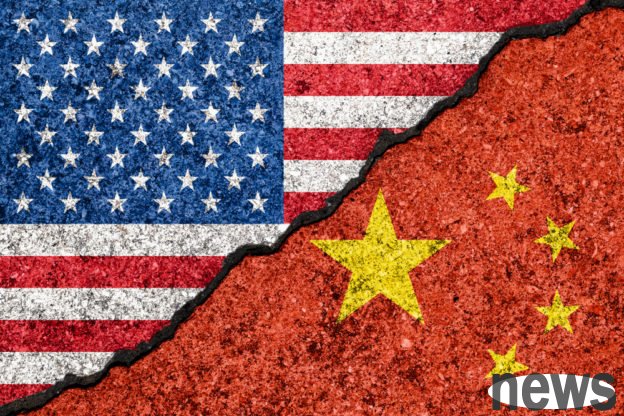According to CNN, the government of China lifted export controls and approved the NVIDIA reduction version of artificial intelligence H20 chips to return to the Chinese market. However, China responded indifferently, and even called the chip structu...
 According to CNN, the government of China lifted export controls and approved the NVIDIA reduction version of artificial intelligence H20 chips to return to the Chinese market. However, China responded indifferently, and even called the chip structure a national security risk. Despite this, Chinese companies still regard these chips as if they were slim.
According to CNN, the government of China lifted export controls and approved the NVIDIA reduction version of artificial intelligence H20 chips to return to the Chinese market. However, China responded indifferently, and even called the chip structure a national security risk. Despite this, Chinese companies still regard these chips as if they were slim.
The United States changed its technical control policy several weeks ago and lifted the ban on H20 chip sales. After that, Beijing called the H20 chip structure a national security risk, and even passed high-level explanations from artificial intelligence (AI) chip giant NVIDIA (Nvidia), and urged Chinese companies to avoid using this chip.
According to reports from the US Network Television News Network (CNN), this unfavorable attitude reflects Beijing's commitment to self-sufficient semiconductor supply chains and China's confidence in the rapid progress of its advanced chip industry.
This kind of frigidity may also be a political attitude. Although China has made significant progress in the semiconductor field, it still needs to rely on American chips and technology.
Experts pointed out that Chinese science and technology giant Hua has developed chips that are comparable to H20, and even in some cases it has more performance. However, China still hopes to obtain more advanced AI processors, which are limited by US export controls and still ban China.
A high-level project of a technology industry group in Beijing (Xiang Ligang) said that in the years when US President Donald Trump imposed technical restrictions on China for the first time in his first term, China's chip technology has suddenly improved, mainly because the government has expanded export controls and the stimulus brought by the increasing sense of frustration. He said: "We have this ability, not what they imagined. Once China is blocked, it will not work, or China will be done."
For the initiative, the U.S. policy has been urgently reversed, highlighting the importance of China's fully domestic chip supply chain. He also pointed out: "For Chinese companies, if we want to ensure that chip supply is relatively safe, it means that we may only rely on this option for domestic chips."
On the other hand, China is wary of the national safety risks of H20 chip structure. H20 is claimed to have functions such as "tracking positioning" and "far-closing". Some U.S. congressmen call for NVIDIA chips to add the above functions, but NVIDIA denies setting these functions in the chip.
The quota just said that China believes that the United States has not competed fairly. He pointed out: "What we really want, you refuse to sell it. Do you think you have passed away and want to sell and capture our market? Do you really think we are so naive?"
Despite Beijing's concerns, Chinese companies still regard these chips as if they were.
Equity research firm Bernstein estimates that without Trump's export controls, NVIDIA's H20 chip export volume to China this year is expected to reach 1.5 million, or about US$23 billion in revenue. The main buyers include Chinese technology giants such as TikTok's parent company ByteDance, Alibaba and Teng.
Qingyuan Lin (Photo), a senior analyst at Bernstein who studies Chinese chip industry, believes that the main attraction of H20 to Chinese companies is that China has limited production capacity and NVIDIA has a mature ecosystem. He emphasized that even if we want to use China's chips to completely replace the demand for H20, the market is still in short supply. Bernstein estimates that China's advanced chip shipments will be about 700,000 this year, far below the demand in the Chinese market.
However, experts still point out that the speed of progress in China's semiconductor technology cannot be underestimated. Lin Qingyuan said that the United States' continued tight export controls over the years have made Beijing feel urgent about pursuing chip self-sufficiency and bringing machines. He said that after China launched a flagship smartphone in 2023, showing advanced chip manufacturing technology that American officials believe is difficult to produce, chip manufacturing technology seems to be slow to move forward, but Chinese chip equipment manufacturers are continuing to develop slowly.
Bernstein also predicted that the proportion of Chinese-made AI chips will rise to 55% by 2027 from 17% in 2023, and the market share of US suppliers such as NVIDIA and Ultramicro (AMD) will shrink significantly from 83% to 45%.
Extended reading: Talent statement: Existing chips are enough to cope with AI training, without the US ban China has taken pressure and asked Alibaba and the font to jump to explain why to buy NVIDIA H20 chips NVIDIA and AMD China chip sales revenue was 15%, and the US export permit was exchanged